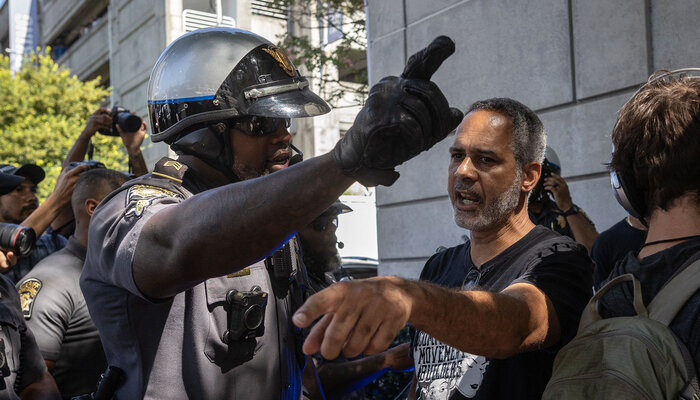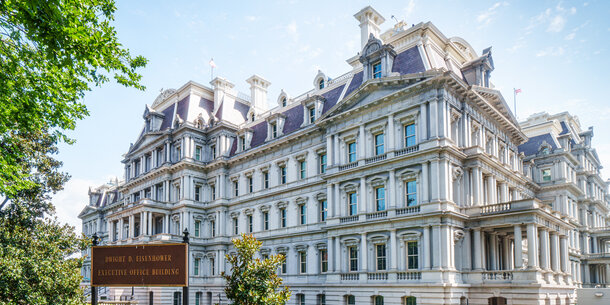Over 2,300 pages of internal intelligence reports and emails demonstrate how broadly the Atlanta Police Department has monitored residents engaged in ordinary activities used by political groups of all stripes. Atlanta law enforcement’s social media surveillance targeted opponents of the construction of a police training facility that activists call “Cop City.” The Brennan Center obtained the documents, available here, through a public records act request.
Construction of the facility is currently underway, though it faces legal and political challenges. The Atlanta government and its backers say the facility is necessary to modernize police, fire, and medical first responder education in the region. Critics say construction will destroy important forested land and that the facility will be used to further militarize police.
In August 2023, Atlanta indicted 61 people on racketeering charges related to years-long opposition to the project. Protests have involved marches, civil disobedience, occupation of public land, and at times property damage and conflict with police, including the police killing of a demonstrator in January 2023 under disputed circumstances.
But observers have roundly criticized the indictment for targeting activists’ ideology and nonviolent political strategies. The activities in the department’s intelligence files include canvassing and signature collection, handing out flyers, hosting town halls, and so on. Targeting people for such First Amendment–protected activity can chill freedom of speech. And in this case, it supported questionable, politicized criminal indictments.
 Source: Atlanta Police Department
Source: Atlanta Police Department
Seventy-six intelligence reports assembled by the department’s homeland security unit compile events between September 2021 and January 2023. The reports contain details about 155 events, over two-thirds of them organized by participants in the Stop Cop City movement. The reports include information about likes and comments on posts, as well as material about other events held by the organizers. Atlanta police have also closely watched Defend the Atlanta Forest, a key player in the movement, monitoring 94 of their events during the period. Of the 45 groups organizing monitored events, police noted that prior events of only two organizers involved civil disobedience or arrest.
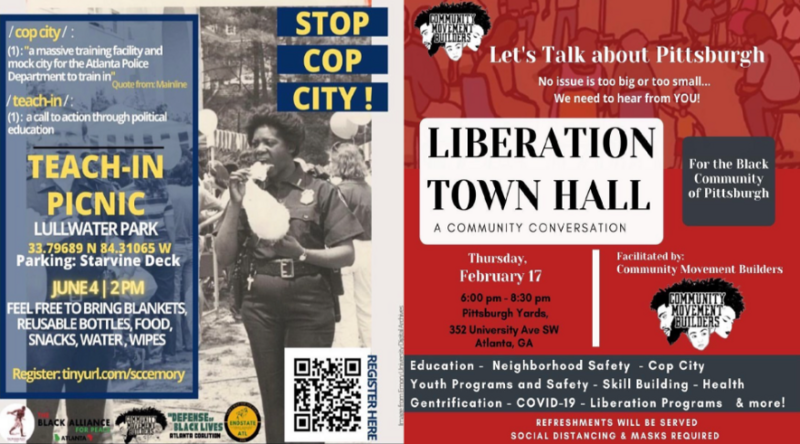 Source: Atlanta Police Department
Source: Atlanta Police Department
While it is true that social media monitoring may help police allocate officers to maintain public safety, Atlanta police’s surveillance far exceeds any such need in many cases, instead serving to keep tabs on citizens the department views as political opponents. For instance, one monitored group hosted a “community conversation” about education, neighborhood safety, health, and the Stop Cop City movement. An intelligence report about the evening noted that the group had hosted prior canvassing efforts and other peaceful events. Another monitored event — a pizza night at a local business — was held by the group Women on the Rise and involved “a moment to reflect” on community safety. Past events organized by the group were similarly peaceful. Prior events by the host of a study group to discuss abortion politics — also the subject of an intelligence report — were logged as peaceful too.
These gatherings are hardly the making of a public safety crisis, and the police are not providing security to study groups. Moreover, throughout its intelligence reporting, the department acknowledges that public engagement with online postings does not necessarily correspond with the likely size of an event, suggesting that this monitoring is hardly useful for resource allocation. Indeed, public engagement with the posts flagged by police was often quite low to begin with. The pizza night post is fairly typical, receiving only 28 likes.
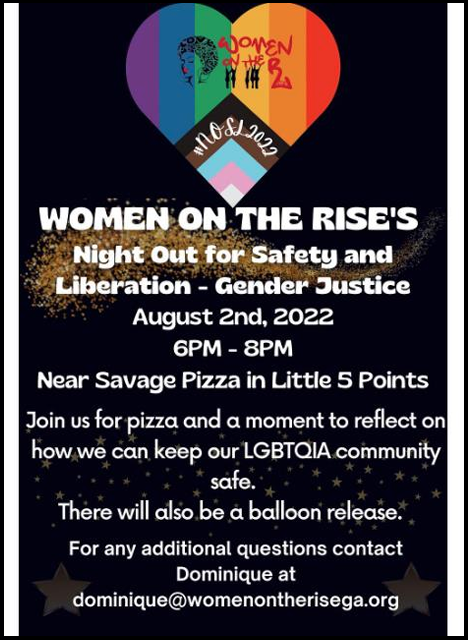 Source: Atlanta Police Department
Source: Atlanta Police Department
The risks of this monitoring are not theoretical: Some Atlantans have refrained from participating in political activities out of fear of further surveillance and other repercussions. Moreover, the collection of political speech and association reflected in these social media reports seems designed to lay the foundation for painting protesters as an organized criminal gang. Similar activities feature prominently in the racketeering indictment, which asserts that the Stop Cop City movement uses social media to “promote its extremist political agenda, legitimize its behavior, and recruit new members.” But for the most part, the posts simply reflect political activity that Georgia authorities dislike.
These surveillance reports are likely to influence policing beyond Georgia. Atlanta police have circulated them widely to all sorts of local officials, Georgia counterterrorism agencies, the FBI and Department of Homeland Security, and universities. One federal agency in this ecosystem, the DHS Office of Intelligence and Analysis, has provided Georgia authorities with politicized information characterizing protesters as domestic violent extremists driven by “anti-law enforcement sentiment,” a theme Georgia cited in its racketeering charges. Together, the agencies form an echo chamber of questionable intelligence that portrays dissent on- and offline as terrorism.
The Atlanta police department’s overreach is unsurprising in light of the fact that the agency’s policy governing officers’ use of social media includes no protections for constitutional rights, inviting fishing expeditions of the kind these documents evidence.
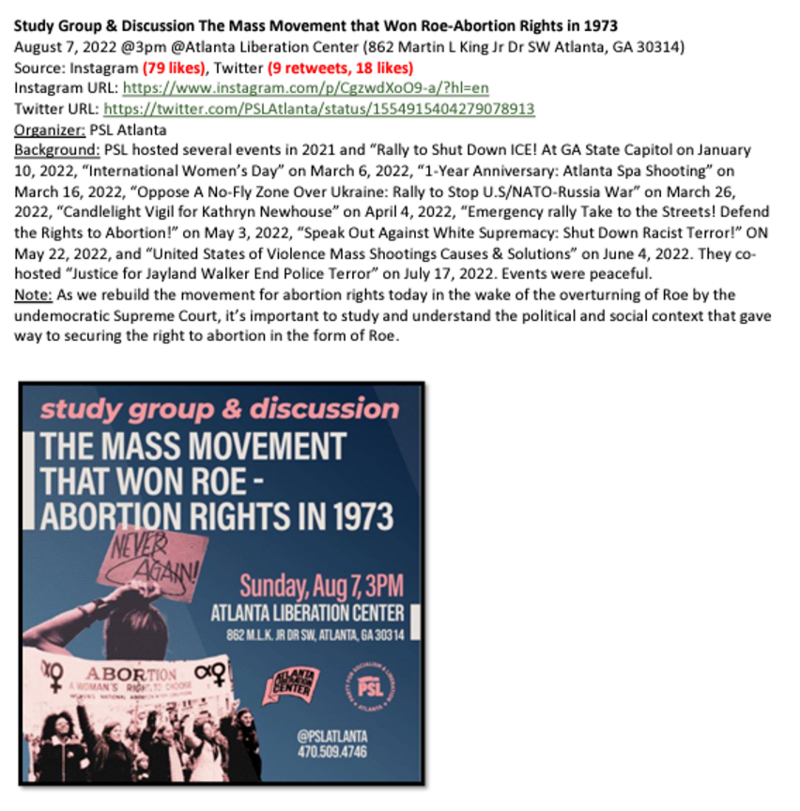 Source: Atlanta Police Department
Source: Atlanta Police Department
The department must adopt stronger measures, including a prohibition on surveillance of First Amendment–protected activity unless there are specific, credible, documented facts showing a public safety concern. Officers should never base decisions on individuals’ or groups’ constitutionally protected activity, nor on violence at previous events that resulted from police activity. These commonsense safeguards, along with restrictions on the retention and dissemination of information, will prevent encroachment upon Atlantans’ constitutional rights by officers’ online monitoring.
